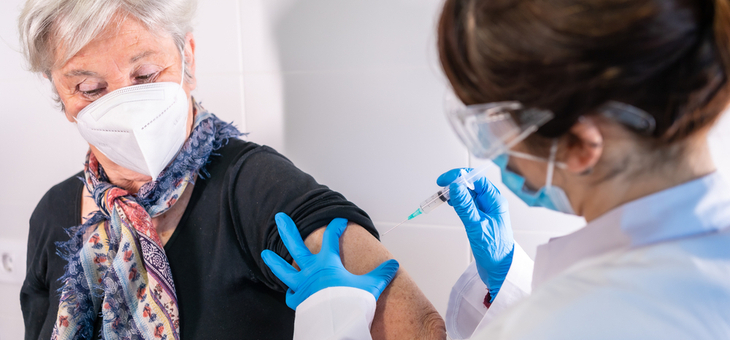As more people receive a COVID vaccine, more side-effects are coming to light.
The most common side-effects from the 15 COVID vaccines being used across the globe are fatigue, fever, headaches, body aches, chills, nausea, diarrhoea and pain at the injection site.
Everyone is affected differently, according to the World Health Organization. Some people may experience few or no side-effects, while others may experience moderate illness or more.
Some people have been taking over-the-counter treatments ahead of their jab, in order to mitigate the side-effects. However, the Centers for Disease Control and Prevention (CDC) does not recommend that.
It says treating symptoms individually once they arise is better than taking over-the-counter meds ahead of time.
Read more: What the experts say about vaccine hesitancy in older Aussies
The CDC also advises consulting your GP or pharmacist before taking any over-the-counter medications to ease side-effects.
For anyone needing immediate relief but who is unable to contact their GP or pharmacist, taking common meds such as ibuprofen, acetaminophen, paracetamol or aspirin may help.
Additional non-pharmaceutical treatments and self-care techniques can also help to ease side-effects.
“For reactions at the injection site, such as pain or swelling, use a clean, cool wet washcloth to create a compress,” writes pharmacist Dr Audrey Amos in Medical News Today.
“This might also help with muscle and joint aches.
“To ease soreness or stiffness in the arm, move it as much as possible. This may seem counterintuitive and cause a little discomfort, but it helps prevent further stiffness by loosening up sore muscles.
“Anyone with chills and a low-grade fever should make sure to drink plenty of water to avoid dehydration. Wearing light clothing and dressing in layers will help prevent overheating.
Something called ‘COVID arm’ can be a side-effect and may take the form of a rash around the injection site, typically after receiving the first dose of vaccine and lasting between five days and three weeks.
A cool compress should take care of that, writes Dr Amos.
“Another option is to speak with a pharmacist to determine whether taking an antihistamine, such as diphenhydramine (Benadryl), would be safe,” she adds.
“Antihistamines can cause drowsiness, so a person should not drive until they are certain about the effects of the medication.”
Read more: Fever? Cough? Runny nose? How to know if you need a COVID test
Recipients are advised to check with their pharmacist about over-the-counter medications.
A pharmacist may also recommend home remedies and advise whether you should contact a doctor.
If any side-effects such as extreme tenderness, pain or redness at the injection site become significantly worse, recipients are advised to contact their doctor or health professional.
Anyone who fears they may be having a severe allergic reaction should call emergency services for urgent medical attention. Some reactions may lead to anaphylaxis and may involve difficulty breathing, closing of the throat, facial swelling and hives.
Read more: What exactly is vaccine shedding? Does it occur with COVID-19 jabs?
Most side-effects caused by the vaccine should last only a few days. If they last longer, recipients should contact their GP or get a COVID-19 test and follow self-isolation guidelines.
Side-effects, such as a fever, chills, and fatigue, are symptoms of COVID-19, but people should know that “no vaccine can cause COVID-19 because none contains the entire SARS-CoV-2 virus”, says Dr Amos.
“Anyone who develops COVID-19 after receiving the vaccine was likely exposed to the virus before they could build up enough immunity.”
It should be noted that reactions to the vaccine are very rare and tend to occur immediately after receiving the vaccine.
While some side-effects can be concerning, medical professionals say that’s how you know the vaccine is working. It’s a sign the body is creating the necessary antibodies to develop immunity from SARS-CoV-2 infections.
Have you had your COVID vaccination? How was it? What did you do to mitigate any symptoms? Why not share your suggestions with our members in the comments section below?
If you enjoy our content, don’t keep it to yourself. Share our free eNews with your friends and encourage them to sign up.
Disclaimer: This article contains general information about health issues and is not advice. For health advice, consult your medical practitioner.

